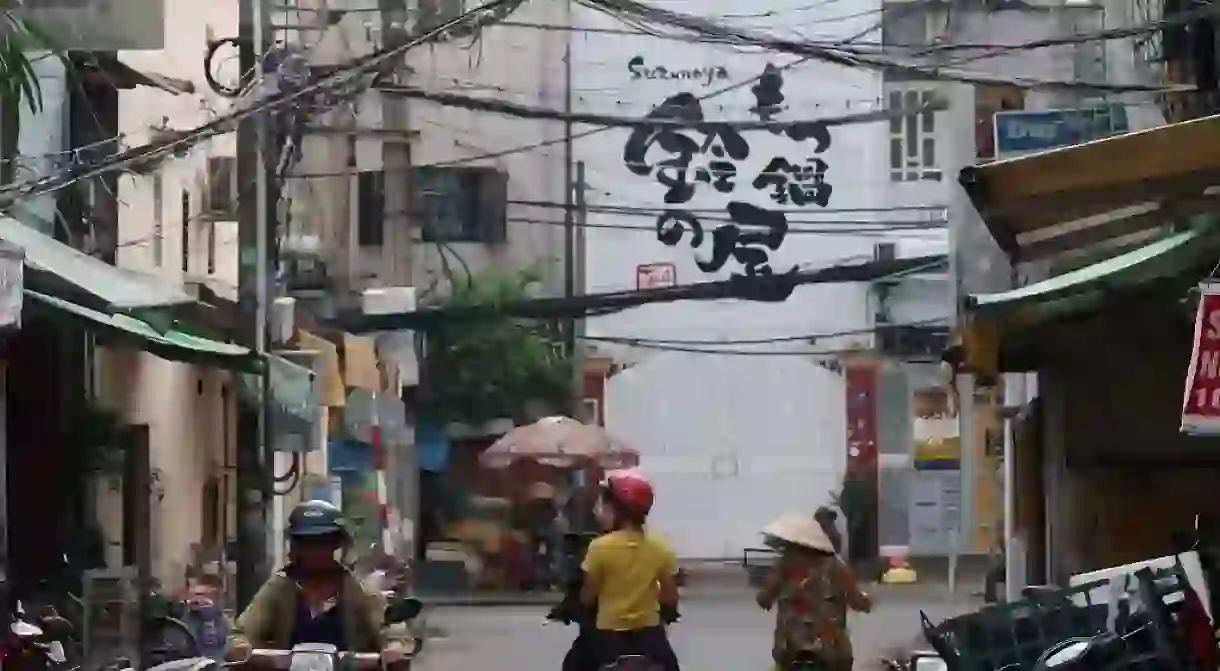Exploring Ho Chi Minh City's New Japan Town

In Vietnam’s largest city, the northernmost stretch of Le Thanh Ton has served as the focal point of all things Japanese for decades. Massage parlors line the street, and whiskey bars or sushi restaurants fill the surrounding alleyways. However, as changes have rippled through Ho Chi Minh City’s sprawl with the regularity of a rising tide and skyscrapers have shot up from the concrete sea, rent in most of the city’s center has escalated immensely. Many Japanese business owners, forced to look beyond the romantic hanging lanterns and neon lights of Le Thanh Ton, have undertaken a new journey. They’ve packed their things, and set off north through rivers of motorbikes and across asphalt fields with one shared destination in mind, a destination a mere district away.
In Binh Thanh, less than three kilometers from Saigon’s Little Tokyo, a second Japanese neighborhood has sprung up. This is an area where Forever 21 has yet to replace the tailor, where the pho lady still claims her sidewalk, and where the gaudy facades of the city’s mega-malls have yet to break ground. Ironically, on some blocks, it’s also an area where noodles and banh mi have been replaced by spicy tuna rolls and miso soup.

The whiskey once native to Le Thanh Ton has migrated northeast. Lanterns have arrived. Japanese caricatures don the walls and shouts of “Irasshaimase!”, or “Welcome to the store!”, ring out.

However, away from the banks, skyscrapers, and tourists of District 1, this new Japan Town sits in contrast to its more popular older brother. This iteration is smaller, more reserved, and less seedy. This destination is not purely Japanese, just as it is no longer wholly Vietnamese. Whatever it is, it’s working.

Ho Chi Minh City’s teens and twenty-somethings, more exposed to the outside world by the hour, have shown up in waves, wholeheartedly embracing the food and culture. The few westerners in the know, mainly English teachers, pack in as well. Curious locals donning ao ba ba’s have joined the party too. The result is a delightful medley of race, culture, and food. Cheap, delicious food.
Without the downtown elites to cater to, this new crop of Japanese establishments serves up some of the city’s best sushi at Binh Thanh prices. Restaurants like Sushi Nhi have become famous throughout Ho Chi Minh and are commonly included in a list of the city’s best. Intimate whiskey bars beckon the city’s worldly youth to their four or five cozy seats.

Through all of this change, the neighborhood has maintained its identity. Old friends still sit beneath the welcome shade of flowering trees, enjoying an afternoon ca phe sua da. Motorbikes still scream around every corner. Fish still sizzle in screaming hot oil, and rich aromas still waft from open homes, hidden down entangled alleyways.
This slice of Binh Thanh is Ho Chi Minh City at its best—open-minded and enthusiastic about a globalized future, yet still in love with and committed to culture and tradition of the past.













